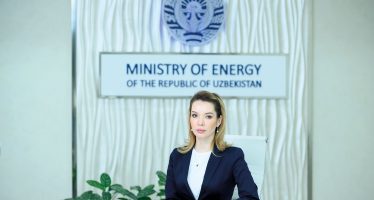The World Bank: Accelerating Africa’s Aspirations
 As Sub-Saharan Africa develops rapidly, it is estimated that the continent will need millions of engineers just to reach a single Millennium Development Goal, that of access to safe water and improved sanitation. However, there is a serious shortage of engineers—and also of scientists, health professionals and technicians—in nearly all of Sub-Saharan Africa’s 48 countries.
As Sub-Saharan Africa develops rapidly, it is estimated that the continent will need millions of engineers just to reach a single Millennium Development Goal, that of access to safe water and improved sanitation. However, there is a serious shortage of engineers—and also of scientists, health professionals and technicians—in nearly all of Sub-Saharan Africa’s 48 countries.
To help address this gap, the Government of Rwanda, a champion of science and technology, and the World Bank, one of Africa’s largest partners in higher education, are co-hosting a high-level forum on Higher Education for Science, Technology and Innovation in Kigali this week.
The time is right to focus on science, technology and innovation because African economies have been growing, partly due to demand for raw commodities. With more graduates in the applied sciences and technology, these economies could add value to raw commodities and compete in the global market for processed products and high-quality services.
Well trained graduates in science- and technology based disciplines can also help their countries find effective, cost-efficient, homegrown solutions to pressing development problems that are related to poverty, food security, climate change, urbanization and health.
“What we are gathered here to do has profound implications for young people in Africa.”
– Tawhid Nawaz, World Bank Director for Human Development in Africa
Themed Accelerating Africa’s Aspirations, the forum brings together senior representatives from governments, academia, development partners and the private sector. They will discuss priorities and solutions as part of a “big push” to upgrade higher education systems across Africa, making them more relevant to the needs of its fast-growing economies.
H.E. Paul Kagame, President of Rwanda, and Makhtar Diop, World Bank Vice President for Africa will address public sessions of the forum on Thursday, March 13. Speeches and high-level panel discussions will be livestreamed through the day at www.livestream.com/worldbankafrica
“What we are gathered here to do has profound implications for young people in Africa,” said Tawhid Nawaz, World Bank Director for Human Development in Africa, addressing ministerial delegations and technical experts today. “Essentially, young people can take advantage of economic opportunities only if they have the right knowledge and skills.”
The forum is sparking an Africa-wide conversation on Twitter and Facebook with the hashtag #Science4Dev, with live tweeting from @AfricaGathering @TWASnews @MINEDUC1 and @WorldBankAfrica.
Members from @kLab (an open space for IT entrepreneurs) and @GirlsinTechRW as well as alumni from the Google Students Ambassadors program will also add their voice to the online conversation, highlighting the role of mobile technology in education.
While watching the live broadcast on March 13, online viewers can ask questions using the Livestream chat bar, moderated by World Bank education specialists Atou Seck and Hiroshi Saeki, who will identify select questions to be answered by panelists.
In conclusion, Rwanda’s Minister of Education, Hon. Vincent Biruta and fellow ministers participating in the forum from Ethiopia, Mozambique, Rwanda, Senegal, and Uganda will announce a Call for Action on behalf of the participants. This will signal high-level attention to the transformation of African economies through greater access to high-quality education in science, technology- and mathematics-based disciplines.
You may have an interest in also reading…
Uzbekistan on the Path to Becoming Carbon-Neutral
In the race to become carbon-neutral, it is useful to look at where the race began. In Uzbekistan, a nation
Statement on World Bank’s $2.1 Billion Support to Nigeria
On Tuesday, July 21, 2015 the World Bank Group President Jim Kim held a meeting with Nigerian President Muhammadu Buhari
WGB Launches New Country Partnership Framework to Support Azerbaijan’s Sustainable, Inclusive and Resilient Growth
The World Bank Group’s Board of Executive Directors today discussed and endorsed the 2015-2020 Country Partnership Framework (CPF) for Azerbaijan.

















































































